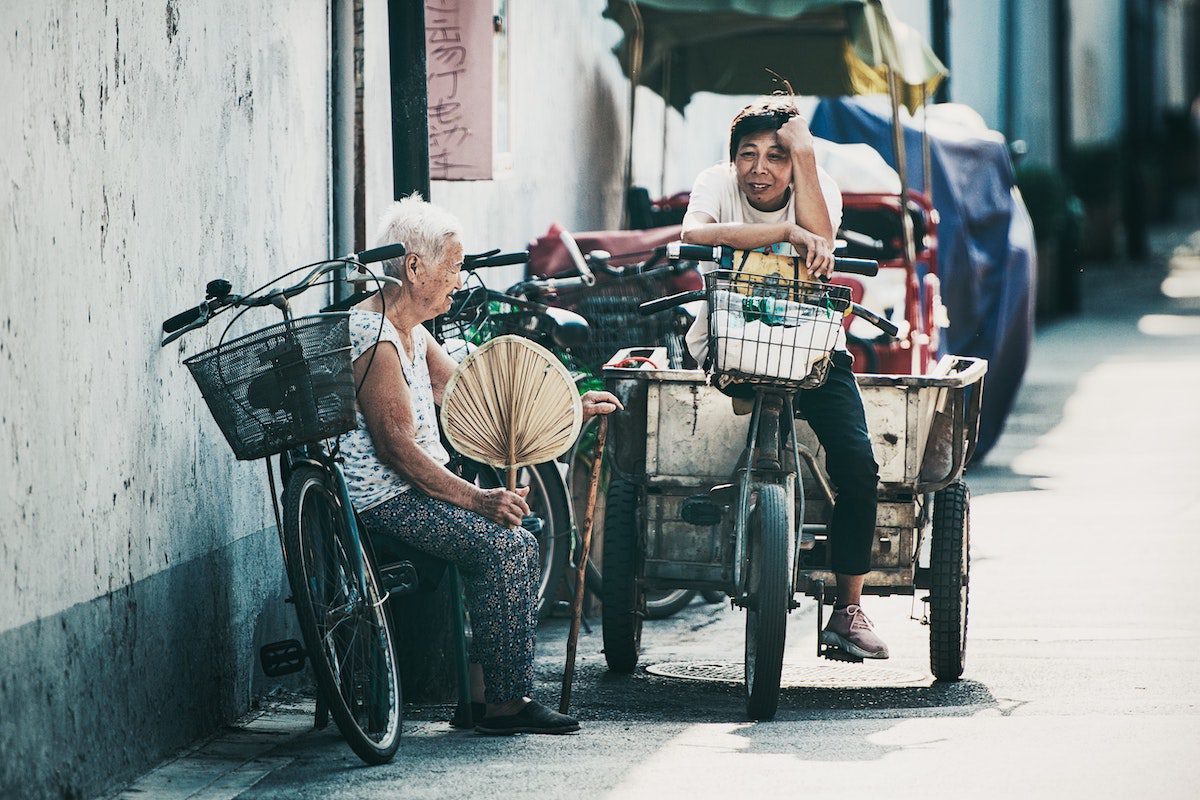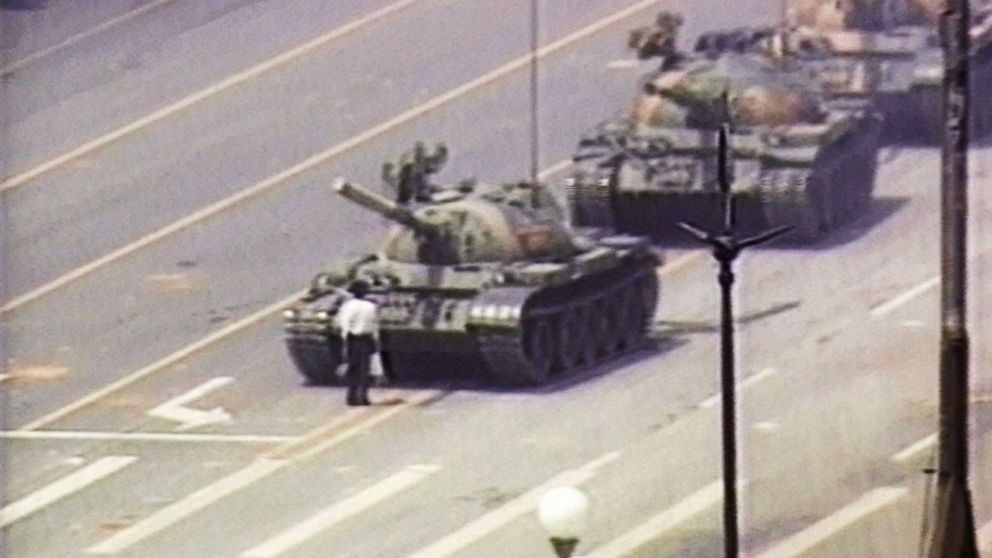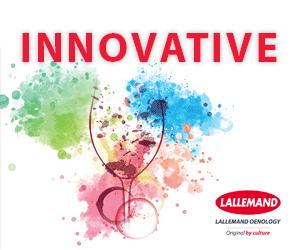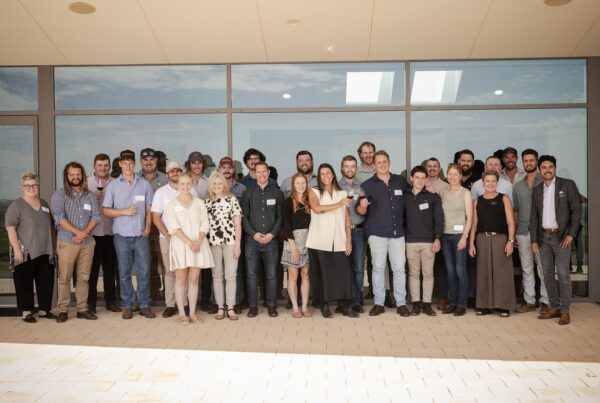
The Australian wine industry has been called a lot of things over the years including innovative, dynamic and sexy. And the best in the world. Today the quandary we are in, is being called disastrous, tragic and cataclysmic.
The fall-out from China’s hatchet job has been swift and brutal.
This threat to rural Australia makes Covid-19 look like a bag of fairy floss.
They dropped the bomb last Friday. On Monday morning one large company alone cancelled a thousand tonnes of uncontracted fruit. And Treasury Wine Estates (TWE) is reducing its intake from the 2021 vintage.
Alarm bells are ringing.
The big fear is that a lot of 2020 wine will not be bottled and it will instead go to the bulk wine market. A wine lake will form, grape prices will fall, businesses will struggle and banks will get very nervous.
Shiraz muffin, anyone?
Chile is dancing in the streets and Spain is smacking the pinata. Many Australian winemakers have been shot five times in 12 months (drought, bushfire, smoke taint, small crops and coronavirus) and they’re still hopping around on one leg; this one could be fatal.
We need to get all the facts. Many won’t bother. They’re out of there. Being in limbo is excruciating; China has chopped our head off and we are still in limbo, waiting for the outcomes of the investigations and the final penalties.
Today China said it may extend the tariffs from four months to nine months. And here we were thinking there would be no Christmas bonuses this year.
Some good news – China is not dead, it is just on hold. It will come back. The tariffs could go down. Or up.
When TWE is slapped with a tariff of 169.3 percent and “All Others” (mostly families) cop 212.1 percent, it’s hard not to feel powerless like the man who stood in front of the army tank in Tiananmen Square in 1989. Sanity will surely prevail.
The trouble is the damage is being done now. A chunk of that $1.2 billion of wine is coming home. Except for Grange and other fancy-pants Penfolds icons; they are status symbols and by all reports they are selling well and may become bigger collectors’ items than they were before. If you’re mad enough to spend $900 on a bottle, you’ll probably spend $2,500 too.
This is a profound challenge for us all.
We need to be quick on our feet. We’re fat and slow. We’re Billy Bunter; we need to be Usain Bolt. We see a lot of struggle among wine producers but the wine industry acronyms never seem to share the same pain. We can’t have an industry full of struggling wine producers but a burgeoning industry of Wine Industry Acronyms.
Wine Australia will be a skeleton; barrels of licence fees have fallen off the back of the truck. We have too many wine shows, too many awards, too many layers of bureaucracy, too many bullshit webinars and seminars and too many experts with too much time on their hands on social media telling us all what to do. Trust me, the world will go on without you.
We need to refocus on people who have genuine skin in the game – the growers and producers who are in it for the right reasons. Put their needs first and rebuild the industry from the ground up.
We need to do some soul searching.
Why are we obsessed with growth for the sake of it? What does that $3 billion mean, anyway? Why do we have to be a big industry? Don’t we just want to be a great industry? And sustainable?
If you only read one book while sunbaking at Maslin’s Beach with a Coopers longneck and a box of Barbecue Shapes, read Intoxicating: Ten Drinks That Shaped Australia by Max Allen. He captures the spirit of where we have been and where we need to go.
Venetians have spotted something very unusual in the canals this year – fish – and the environment in Australia would be breathing a sigh of relief, too, should production come off the boil for a while. Not that anyone wants to see regional Australia brought to its knees. Phil White has been banging on about water his whole life.
Family businesses need serious talks around the kitchen table. With visitors flocking to regions and cellar doors, and with paid tastings and experiences now all the rage, why not focus more heavily on that side of the business and direct-to-consumer sales – even if it means downsizing to buggery.
Flying here, there and everywhere to markets that can vanish in the blink of an eye, is no way to run a business – or to live your life.
Wine Australia led us to the Promised Land.
In fairness we didn’t need much convincing because every other market had turned sour.
Put your snout in the trough, have another deep-fried scorpion, grab a handful of those curried monkey balls, skull that wine and we’ll worry about eggs in other baskets later. The fireworks blew up in our face. We spent $50 million to lose $1 billion.
Industry groups alone won’t get us out of trouble, we need the entrepreneurs to step up. This firestorm has further exposed the fact there are two separate industries – the big boys and the smaller producers. They have about as much in common as a dagwood dog and a beer-battered bat bum.
When China banned our barley, it was a big story. When they banned our lobster, beef and coal, they were big stories, too. But when they banned our wine, all hell broke loose and our predicament rocked a sombre Parliament.
The industry is livid, but so are friends and neighbours. It says something about the standing of wine in our community and reflects the hard work we have done to turn Australia from a VB culture to a wine culture.
The Australian wine industry will survive – many producers will thrive, opportunities will open up and we’re already starting to hear some great stories about big wins in other markets.
Has the Wendouree business model looked more steadfast than it does today? They’ve been shot five times, too, but the bullets bounce off. Respect. That’s the model.
It’s a good time to be an optimist.
What would have happened if China didn’t come to our rescue 10 years ago? Would all those vineyards be turned over to wildlife corridors by now? It was a lucrative decade; put investment back into the industry.
Nothing lasts forever.
When disasters like this happen it’s a dent to your pride. It can feel lonely. You wonder if there’s anyone in your corner.
The Inter-Parliamentary Alliance on China is urging people to buy Australian wine. Their Twitter video has been seen 634,400 times – one of the most-viewed videos about Australian wine ever made. Modest production; the camera work is amateurish. It’s about the message – not your new $20,000 video camera. It’s a good reminder that Australia is so far away from a lot of its markets it needs to be the best it can be at digital communication.
The National Security Council in Washington tweeted, “Australian wine will be featured at a White House holiday reception this week. Pity vino lovers in China who, due to Beijing’s coercive tariffs on Aussie vintners, will miss out.”
A week is a long time in geopolitics. With all the diplomatic spot fires breaking out and nations jostling for positions to save struggling economies mid-Covid, anything could happen. Sooner or later China will need us in its jigsaw puzzle of trade deals.
Joe Biden will have a calming influence on the world. After four years of hatred and bigotry – and Twitter being one big piece of poo – the quality of the dialogue will return. (Hey, I’m an optimist.) Respect will be restored.
Australian Ambassador to America, Arthur Sinodinos, must get in Biden’s ear. Blue blood Liberals in Australian wine would know the articulate Sinodinos. Phone him.
I have a dream.
Biden and Xi Jinping get along.
Biden reminds Xi about their little Aussie mate who needs a fair go. They do the deal and we’re back in the game.
In the meantime Morrison has vowed to look after us. Government subsidies. What could possibly go wrong? Scotty, shut your wallet and open your diplomacy and sensitivity. Sure, call out injustices, but stop the emotive, inflammatory outbursts because that’s exactly what China wants to hear. Stand above it.
Stay classy, Australia.
China called us “evil”. No biggie. Evil Knievel did some good stuff.
As for Simon Birmingham, seriously, what do you have to do to get sacked as Trade Minister? How many ruined trade deals do you need to oversee before someone taps you on the shoulder? Moving him on should be the start of the reconciliation. It would show intent.
Australia has one big thing going for us – consumers across the world love our wine. Including the Chinese.
The prospect of exploring new frontiers is exciting.
We’ve survived without China before. In 2007 when our exports hit $3 billion, China contributed just $55 million.
Brand new plastic toy guns that break on Christmas morning and make you cry aside, China is a remarkable country. It dragged 600 million people out of poverty. One of the greatest humanitarian stories of all time. I’ll never forget it.
Neither will I forget what they did to us this week.
You forget what people said to you, but you never forget how they made you feel – ripped off and humiliated.
Back on 25 March, sitting here alone in lockdown in my office trying to make sense of Covid, I asked my 89-year-old father what he thought.
Ken got back with two sentences.
“The excesses and greed of the Western world have finally taken their toll. Australia will never be the same again.”
Every time I turn on ABC Radio I hear another industry mouthpiece talking about how their industry is the best in the world.
If you believe all of these experts, Australia has the best doctors in the world, the best firefighters, the best chess players, the best footpaths, the best scientists, the best stadiums, the best dog kennels, the best wheel nuts and the best chops and sausages in the world.
Now we need to be the best in the world at digging ourselves out of a big ditch.
It’s time for some humility and to reflect on our place in the big wide world.
Big moments like China will be the making of us.
Mystery surrounds the fate of the man who stood in front of that army tank in Tiananmen Square in 1989.
By all reports, he survived.

Main photo by zhang kaiyv on Unsplash
• A version of this article first appeared in the WBM Friday newsletter The Week That Was.
• China wine tariffs a kick in the guts for regional Australia.
• Australian winemakers hung out to dry.













Recent Comments